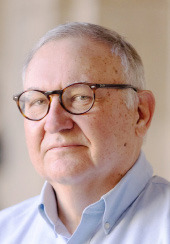All Things N ebraska ‘Where’s the beef?’ Right here with Nebraska cattle
Nebraska is cattle country. We used to be known as “The Beef State” – a nickname I always liked.
But recently, cattle producers have raised a beef with the president over his ideas to reduce the cost of beef at the grocery store.
Every media has covered the cattle kerfuffle: President Trump proposed to quadruple beef imports from Argentina, so that record-high prices in our country might come down. (He also sent a $40 billion bailout to the struggling South American country – a country that is selling soybeans to China, soybeans that used to be purchased from U.S. farmers. “Make Argentina Great Again” hats went on sale. And Brazil sold all of its soybean crop to China. But that’s another story for another day.) The president also said that the tariffs that he’s imposed on beef imports have helped livestock producers.
That analysis and his proclamation to buy more beef from Argentina brought a sharp response from farm groups that typically support Trump. It was a complete about-face from his oft-repeated mantra of “America First,” which is about increasing sales and production of U.S. products by imposing stiff tariffs on other countries.
The National Cattlemen’s Beef Association said that the president’s comments “undercut” America’s beef producers and threatened their livelihoods.
Another group, Farm Action, called Trump’s actions “a betrayal” of ranches and farmers. And the president of the Nebraska Farm Bureau and incoming head of the Nebraska Cattlemen both said the ideas were wrong headed.
U.S. Rep. Don Bacon, who has criticized Trump’s tariff policies, told the Omaha World-Herald that his analysis of high beef prices was a “bit of false reality.”
Even U.S. Sen. Deb Fischer, whose criticisms of the president are as rare as a five-legged horse, called on Trump to rethink his position.
Another consistent Trump supporter, U.S. Rep. Adrian Smith said that he was encouraged that talks were underway with China to get them to resume purchases of U.S. products. Well, duh, let’s hope so.
Now, I haven’t slept in a Holiday Inn recently, but I do have some crude understanding of how beef markets work. And beef prices are high now because there’s fewer cattle out there to meet demand. It’s the old supply and demand system.
Beef prices are very cyclical, and when there’s too many cattle out there – as happened a couple of years ago – prices are low, and ranchers tend to reduce their herds. But when there’s fewer cattle out there to turn into steaks and hamburgers, prices go up, as they are now.
Tariffs, all the farm groups pointed out, don’t have much to do with that. (And some economists told the Associated Press that boosting beef imports from Argentina -- because they’re only a fraction of U.S. consumption -- won’t do much to lower prices.)
High prices for cattle are one of the few bright spots out in farm and ranch country right now. Producers are finally making some money, after some lean years.
Meanwhile, prices for corn and soybeans are, shall we say, in the toilet, in part because countries that used to buy our crops, like China, aren’t buying now because of Trump’s new tariffs.
This is a hard topic to write about, because by the time you read this, there might be some completely different news about tariffs and trade for American beef and grain. Maybe.
That seems to be the nature of news these days. It’s helter-skelter – peace in Gaza then fighting resumes, purported drug boats blown up in the Caribbean, and threats, made and withdrawn, about sending the National Guard into American cities.
But the president, if he wants to retain his typically strong support from ranchers and farmers, better sit down, have a burger, and rethink and reverse what he’s pondering about beef and trade.
Paul Hammel has covered the Nebraska state government and the state for decades. Prior to his retirement, he was senior contributor with the Nebraska Examiner. He was previously with the Omaha World-Herald, Lincoln Journal Star and Omaha Sun. A native of Ralston, Nebraska, he loves traveling and writing about the state.

.jpg)








